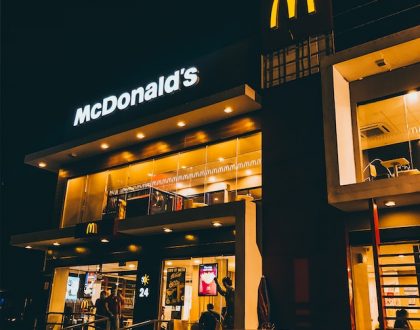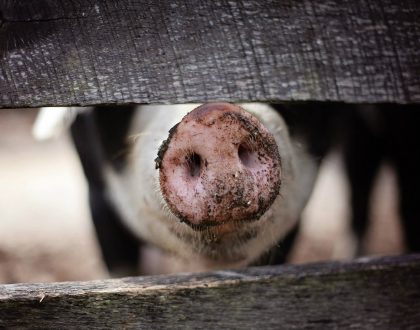Is Alcohol Haram in Islam?

What are the rulings about Alcohol in Islam?
It is unthinkable for governments today to ban alcohol. The US tried it in the 1920s but found prohibition created a new wave of problems than those it was to eradicate.
Often there is confusion surrounding the ayahs concerning alcohol in the Qur’an – is it haram, when the word haram itself has not been used? Is it permissible if consumed in small quantities which do not intoxicate you? Why did Allah say not to approach salah when intoxicated if alcohol was prohibited?
What does the Qur’an say about alcohol?
It is clear from the Qur’an and the sunnah that alcohol is haram in Islam. However the prohibition of alcohol was one of the last substances to be prohibited in Islam, which means that alcohol was being drunk while Islam was a fledgling and then being established as it not banned outright until about two decades later.
There is a deep lesson in this from Allah Almighty on how to change culture and habits. The prohibition was brought in once people’s imaan had been given the chance to strengthen and were gently taken from the first warning to its complete ban in stages.
Allah Almighty weaned the Arabs, for whom alcohol was a staple part of life, off alcohol in a similar way to the rehabilitation process. This is perhaps also the reason why the prohibition failed in America but worked in Madinah, as there has been a period of preparation for this major change in lifestyle. No wonder there was widespread acceptance of the ban in Madinah, whereas the production and consumption of alcohol in America became even more problematic when it was banned.
Gradualism
Tadaruj or gradualism is the introduction of a concept over a period of time so that it is not overwhelming in the first instance. The prohibition of alcohol was spread over 3 stages.
If alcohol had been outlawed from the beginning, it would have put off believers, as they would be unable to cope with its prohibition overnight. Aisha, the mother of the Believers, (may Allah be pleased with her) said:
When people embraced Islam, the verses regarding legal and illegal things were revealed. If the first thing to be revealed was: ‘Do not drink alcoholic drinks.’ people would have said, ‘We will never leave alcoholic drinks,’ and if there had been revealed, ‘Do not commit illegal sexual intercourse,’ they would have said, ‘We will never give up illegal sexual intercourse.’ (Bukhari)
Alcohol is mentioned four times in the Qur’an.
First Mention: Surah Nahl
And from the fruits of the palm trees and grapevines you take intoxicant and good provision. Indeed in that is a sign for a people who reason. (16:67)
In surah Nahl Allah Almighty comments that man derives sakar (intoxicants) from the fruits of date palms and grapes and from this generates a lucrative income, rizq hasana i.e. throughout history and today, the sale of alcohol is a profitable source of income. Compared to selling the fruit, for example 1kg of dates which would earn £5, a 1kg of alcohol would bring in £25, five times as much. There is no prohibition yet, but the first reference to it.
It is very difficult for people to stop trading alcohol because it is big business, generating massive revenue. It is also embedded in the social and economic fabric of society even though the harm it causes in terms of health, crime and social problems as well as their economic impact on the state is incalculable.
Sakran (singular) is used for a drunk person and Sukara (plural) is mentioned twice – in surah al Hajj when the terrified state of people on the Day of Resurrection will be as if they are drunk:
O mankind, fear your Lord. Indeed, the convulsion of the [final] Hour is a terrible thing. On the Day you see it every nursing mother will be distracted from that [child] she was nursing, and every pregnant woman will abort her pregnancy, and you will see the people [appearing] intoxicated while they are not intoxicated; but the punishment of Allah is severe. (22:1-2)
Second Mention: Surah Baqarah
They ask you about alcoholic drink and gambling. Say: ‘In them is a great sin, and (some) benefit for men.’ (2:219)
Allah Almighty draws attention to the harms caused by alcohol, here mentioned as ‘khamr’ or wine.
Khamr – Brain covering is Anything which befuddles – literally covers the senses, like a khimar (veil), is to be shunned. Khumur is the plural of khimar and the verb takhamara in Arabic means covers his head.
Third Mention: Surah Nisa
O you who believe! Approach not the Salah (the prayer) when you are in a drunken state until you know (the meaning of) what you utter. (4:43)
This ayah curtails how much alcohol could be drunk, as previously one could drink at any time, but if salah had to be approached sober, believers would have to stop drinking sufficiently in advance so that their judgement wasn’t impaired. As the times between salah can be quite short, the only period of time left for drinking would be between isha and fajr, significantly reducing the amount of time that could be spent drinking.
Responding to Allah’s Call
The phrase preceding this command is ‘O you who believe’, which introduces various commands and prohibitions in the Qur’an. It is Allah Almighty’s special, personal call to His believers. The moment they hear it they should reply labaik ya Rab, ‘I am at your service my Lord’.
Background
Those who came to salah intoxicated were not praying accurately or mindfully. On one particular occasion where mistakes occurred as the imam was intoxicated, Omar (may Allah be pleased with him) asked Prophet (peace be on him) to outlaw drinking. The Prophet (peace be on him) said that he could not make it haram without revelation.
Imam Ahmad recorded that Abu Maysarah said that Omar once said, ‘O Allah! Give us a clear ruling regarding al khamr!’ Allah sent down the ayah of Surat al Baqarah…
They ask you (O Muhammad) concerning alcoholic drink and gambling. Say: ‘In them is a great sin…’
Omar was then summoned and the ayah was recited to him. Yet, he still said, ‘O Allah! Give us a clear ruling regarding al khamr.’ Then, this ayah that is in Surat an Nisa’ was revealed…
O you who believe! Approach not salah (the prayer) when you are in a drunken state. (4:43)
Then, when the prayer was called for, a person used to herald on behalf of Allah’s Messenger, ‘No drunk person should attend the prayer.’ Omar was summoned again and the ayah was recited to him. Yet, he still said, ‘O Allah! Give us a clear ruling regarding al khamr.’
Then, the Ayah that is in Surat al Ma’idah was revealed, Omar was again summoned and the ayah was recited to him. When he reached…
So, will you not then abstain (5:91) he said, ‘We did abstain, we did abstain.’
This is also the narration that Abu Dawud, At-Tirmidhi and An-Nasai collected in their books.
Fourth Mention: Surah al Maidah
O you who believe! Khamr, Maysir, Ansab, and Azlam are an abomination of Shaytan’s handiwork. So avoid that in order that you may be successful. (5:90)
In surah Maidah Allah Almighty instructs believers to observe the final ruling: khamr (intoxicants), maysr (gambling) and idolatry are abhorred so fajtanibuh, avoid them.
The companions said, `We abstained, O Lord!’
Linguistic argument
People who argue that fajtanibuh meaning ‘avoid’ falls short of stating that alcohol is haram are trying to teach Arabs their own language. Who knows Arabic better than the Arabs? You cannot tell the Arabs how to understand their own language.
What did the companions understand when the ayah was revealed? There is not a single narration (out of thousands) that indicates the sahaba considered drinking alcohol was permissible after the ayah was revealed.
Satan only wants to cause between you animosity and hatred through intoxicants and gambling and to avert you from the remembrance of Allah and from prayer. So will you not desist? (5:91)
In the subsequent ayah, Allah Almighty asks them ‘Will you not stop?’ (using the verb intaha, i.e. finish). The companions replied, ‘bala’ i.e. yes. And they stopped.
This was the final warning.
Stricter than haram- blocking all access
Fajtanibuh from the verb Ijtanab is stronger than imtinah, and means don’t come near. Like the command la taqribu (do not go near) to Adam not to approach the tree (2:35), and in surah Isra, do not get into a situation that leads to zina, fornication (17:32), let alone commit the act itself, Allah Almighty is instructing believers that it is not enough to refrain from these sins, but they have to actively protect themselves from the sin by keeping well clear of it. This is more than a command not to do something, it is a command not to have anything to do with it at all.
So for instance, if you say do not talk to a person, you could still be near that person. However if you are forbidden to be near that person, that means you keep your distance, and do not enter their company. It blocks your access to them completely.
Allah Almighty is blocking all the means which lead to it. Just because He did not use the word haram to make it forbidden, does not make it permissible. This is the common arrogant tendency of making what is haram halal.
Though alcohol affects people differently, anything which is harmful, as well as addictive is not left to our discretion to determine safe levels but prohibited by the shariah for the safety of the individual, family and community.
It is no surprise that the UK National Institute for Health and Clinical Excellence guidelines say ‘there is no safe alcohol limit and even drinking small amounts could cause illnesses including cancer.’
Allah Almighty says the Prophet (peace be on him):
enjoins upon them what is right and forbids them what is wrong and makes lawful for them the good things and prohibits for them the evil and relieves them of their burden and the shackles which were upon them. So they who have believed in him, honoured him, supported him and followed the light which was sent down with him – it is those who will be the successful. (7:157)
The Sunnah
Those who say that alcohol is not haram are failing to take into account the sunnah, or very selectively plucking one of the earlier ayahs on alcohol and deducing rulings from it, without looking at the whole picture. You cannot deduce full rulings from one ayah – the application of the ayahs are through the application of the ayahs as demonstrated practically by the Prophet (peace be on him). If you cut the Qur’an from the sunnah you are distorting it.
There is no room in the sunnah to doubt the finality of the prohibition of alcohol. Alcohol is listed as a major sin, the mother of all evils and the abomination of shaytan, and anyone handling it, not just drinking it is cursed, in the hadith:
Anas said that the Messenger of Allah cursed ten people in connection with wine: the wine-presser, the one who has it pressed, the one who drinks it, the one who conveys it, the one to whom it is conveyed, the one who serves it, the one who sells it, the one who benefits from the price paid for it, the one who buys it, and the one for whom it is bought. [Tirmidhi and Ibn Majah]
It is narrated in Sahih Muslim:
Every intoxicant is khamr, and every khamr is forbidden
Is it permissible to consume a small quantity as it is not intoxicating?
It is not allowed to consume alcohol even in small quantities, including confectionery, or in meals that are cooked with alcohol, as the alcohol does not all evaporate, including in dishes which are flambé, as the alcohol remains after it has been set alight.
That which intoxicates in large quantities is prohibited in small quantities. (Abu Dawud, Tirmidhi, Ibn Majah)
The results of the study carried out by the U.S. Department of Agriculture’s Nutrient Data Laboratory, published by the Journal of The American Dietetic Association, showed that depending on the cooking method, cooking time and the cooking vessel though some alcohol evaporates, up to 85% remains behind. (See link for details the study.)
Is it permissible to take medicines containing alcohol?
No. Especially if there is a a non-alcoholic alternative.
Is it permissible to use products topically containing alcohol?
There are differences of opinion on this matter. Due to the unavoidable presence of alcohol in everyday products (such as creams, deodorants and perfumes etc), and the fact that these are derived from alcohol that is not extracted from grapes, dates, or barley, there are opinions, including in the Hanafi madhab, which make their topical use permissible. (For a more detailed explanation see this link)
Impure (najas)
The alcohol in alcoholic beverages is considered a major impurity. Therefore if it falls on ones clothes, and covers more than the area of a 50 pence coin, one would not be able to pray in them. The clothes would have to be removed and washed thoroughly with running water so that the impurity is washed out.
By contrast, a substance which is a minor impurity would have to fill more than a quarter of one’s clothes for it to make the outfit impure and invalidate salah.
Making Choices and Minimising Sin
We cannot abolish evil in dunya, but we can minimise it. It is not possible to create a utopia on earth. That is an illusion. The only place where there are no sins is Jannah.
As well as having tendency to do good, by default the human community also commits sins. It depends which one of these inclinations you nurture within yourself. For example, a criminal can be highly intelligent but chooses to use their intelligence in a morally harmful way to himself and society.
The potential for sin is ever present, however Islam minimises access to sin. There are windows and gates that lead to sin, but shariah came to close the access to these gates and windows. We have the keys for these gates, otherwise we would have no choice and no reward for abstaining from sin. One of the gates to sin is alcohol. And another one of these gates is the company we keep. Be surrounded by the right people. If you mingle with wrong crowd, they will pull you into sins. Good company is a shield. Sometimes you are protected by the circle of people around you.
Related posts
Where does it say alcohol is haram? (part 1)
why is alcohol prohibited in Islam (part 2)
The concept of gradualism in Islam
Recommended Posts

Can I eat the food of Jews and Christians?
September 08, 2023

Why don’t Muslims eat pork?
June 28, 2021


